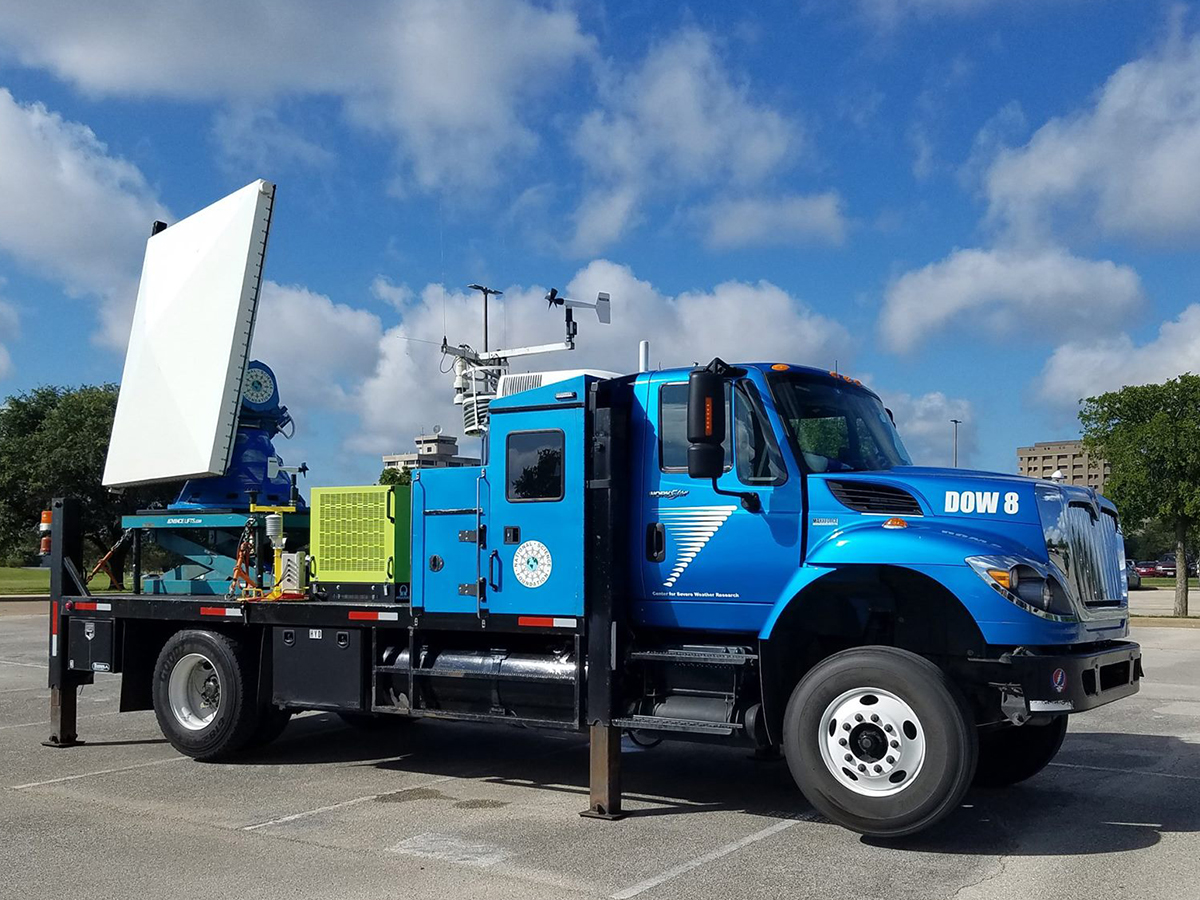Undergraduates Invited To Apply To 2018 Atmospheric Sciences REU Program
Undergraduates Invited To Apply To 2018 Atmospheric Sciences REU Program
Jan 26, 2018
World-class doppler on wheels research experience was a highlight for the 2017 REU cohort.
For the fifth year, Texas A&M University’s Department of Atmospheric Sciences will host ten students from across the country in its Research Experiences for Undergraduates (REU) cohort for nine weeks this summer.
REUs around the United States allow students to be immersed in real-world research projects and learn from faculty experts. The National Science Foundation (NSF) funds the nation-wide REU program. Titled Atmospheric Science in the Gulf Coast Region, the department’s REU is organized such that each of the 10 undergraduate students is assigned an individual atmospheric sciences faculty mentor, giving the students a uniquely focused mentorship.
Students can apply for the program online, and the deadline is Feb. 15.

Unique Opportunities And Faculty Mentoring
“What makes an REU work is a faculty member deciding to selflessly mentor, usually uncompensated, for the summer — that’s what makes an REU program great,” said Dr. Don Conlee, instructional professor of meteorology at Texas A&M and co-principal investigator for the REU project. Dr. Robert Korty, professor of Atmospheric Sciences, also serves as a co-PI and mentors one of the undergraduate students.
“Our REU is a great way for the department to give back to the scientific community by educating and providing opportunities to very promising young students,” Conlee said.
For five days mid-summer last year, the REU students, Conlee, Korty and Texas A&M undergraduate students packed up for a field work expedition to Galveston. In addition to usual weather equipment, the entire crew also got to use a unique tool: a Doppler on Wheels (DOW).
The Rapid-Scan DOW is a piece of world-class meteorological technology, able to scan the entire nearby atmosphere in seven second as opposed to the typical 4 minutes of standard radars. The radar is primarily sensitive to precipitation, both raindrops and frozen such as hail and snow.
“For summer 2017, we borrowed an NSF asset – a Doppler on Wheels, and we used that in our field experience as well as locally here with our students; so, our Aggie undergrads and graduate students also got hands-on experience with it,” Conlee said. “We also brought our weather balloons and weather stations to Galveston, so that everyone got experience with a lot of equipment.”
While in Galveston, the team studied how inland showers and thunderstorms develop. They used equipment that’s designed for larger, severe thunderstorms, Conlee said, but used some of those strengths to learn about ordinary convection. The data collected will probably feed into further research, by Dr. Courtney Schumacher, he said.
“The usage of the rapid scan DOW to study more ordinary precipitation such as coastal showers is relatively novel,” Conlee said. “We expect to gain some understanding of the basic fundamentals of this kind of convection.”
Getting a taste of what field research is really like is very beneficial, Conlee said. “The students get to participate in the daily planning of the routine and how to get into the rhythm of a field experiment, which is very valuable experience,” he said.
Following the Galveston trip, each student worked with their mentors to develop a research poster summarizing their summer of research. Most REU students go on to present their posters at a professional meeting student conference, and some presented their work at the American Meteorological Society meeting in Austin this January.
Students Get Introduced To Research Through REU
This past summer’s REU brought students from all over the country – from as far away as New York and Minnesota – and for some of them the program was their first time on a major research university campus.
NSF strategically uses the REU program to introduce research to undergraduates from smaller universities, which may have fewer hands-on research opportunities. Atmospheric Science’s REU specifically partners with four universities across the Gulf South that have undergraduate-only meteorology programs, which helps meet the programmatic goal of providing opportunities to small-school students.
The students also had the opportunity to visit the National Weather Service’s Galveston office and StormGeo, a private meteorological and ocean forecasting services company.
“And, like all good REUs, we make sure students get some exposure to how to apply to grad school, what grad school is like, how to present your work, and how to participate in a university-wide undergraduate research poster experience,” Conlee said.

